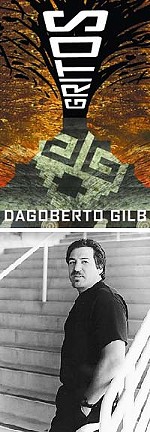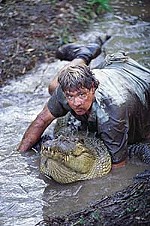Book Review: Readings
Mark Doty
Reviewed by David Garza, Fri., Feb. 16, 2001
Still Life With Oysters and Lemon
by Mark DotyBeacon Press, 70 pp., $20
Young poets like to believe that prose is undeniably artless in comparison to their own work, and that a poet trying to write prose is far more interesting than, say, a novelist trying to string together a stanza. But Mark Doty, who teaches some of the nation's best young poets at the University of Houston, must know that most poets attempting prose during the past 100 years have produced disappointing results that fail to match either the artistic skill of their own poems or the technical achievement of more expert writers of prose. For this reason, readers should writhe in a near sexual ecstasy in the rare case when a text successfully combines the distinct intellectual and physical experiences that each genre can trigger. Eschewing any type of swift categorization of genre, the skin-thin volume Still Life With Oysters and Lemon is one of these precious texts.
Doty begins his work by exploring the rapture of standing in New York's Metropolitan Museum of Art and studying the painting "Still Life With Oysters and Lemon" by the Dutch artist Jan Davidsz de Heem. Not unlike Rilke in his best moments of Letters on Cezanne, Doty is able to articulate the physical and spiritual ecstasy of the artistic encounter as a gateway to knowledge about intimacy, memory, and death: "everything floats in this brink, suspended along the long tunnel of disappearance." In the slow and heavy sweep of this free association, the author shares some engaging minor sagas about his early life in rural Tennessee, from the aesthetic influence of his vintage Southern grandmother to the budding nascence of his loneliness.
Doty's work escapes the banal rubric of "memoir" quite easily with his willingness to share these moments sparingly and strictly in the service of the deeply intoxicating topics at hand. Interestingly, the author's previous work, a rather troublesome and self-indulgent memoir called Firebird (1999), featured some equally seductive language and authorial poses. The difference (and it is astounding) is that in the first case, the author coos to himself about a nostalgia that bears no real importance to the reader, whereas Still Life artfully creates the space necessary for dialogue, and it demands that the reader come to the text with some worthwhile ideas on the ecstasies of breath and of art and of death. What the reader is left with is an overwhelming spiritual sheen.
Most important, ultimately, is the fact that the book is written by a poet. That is not to say that a writer of prose could not approach some of Doty's topics with an arresting style as well. But in the end, there are fundamental distinctions between the way poets and other writers operate, the way they see and try to understand the world. When the author recalls the treasure of peppermints hidden in his grandmother's pocketbook, it is undeniable that a poet is at work: "They emerge, one after the other, endless, pouring out: perhaps they come into being the way matter is said to do, from the collapsed bodies of dead stars, streaming out into the world." Doty is also open about his poet's frustration to find a language that can communicate what the shine of a slick oyster can share: "Their liquidity makes me want language to match, want on my tongue their deliquescence, their liquefaction." For a reviewer, the results of Doty's explorations are so divine and subtle and elusive that they become a real challenge to even approach in this format. For a reader, the pleasure is endless.










